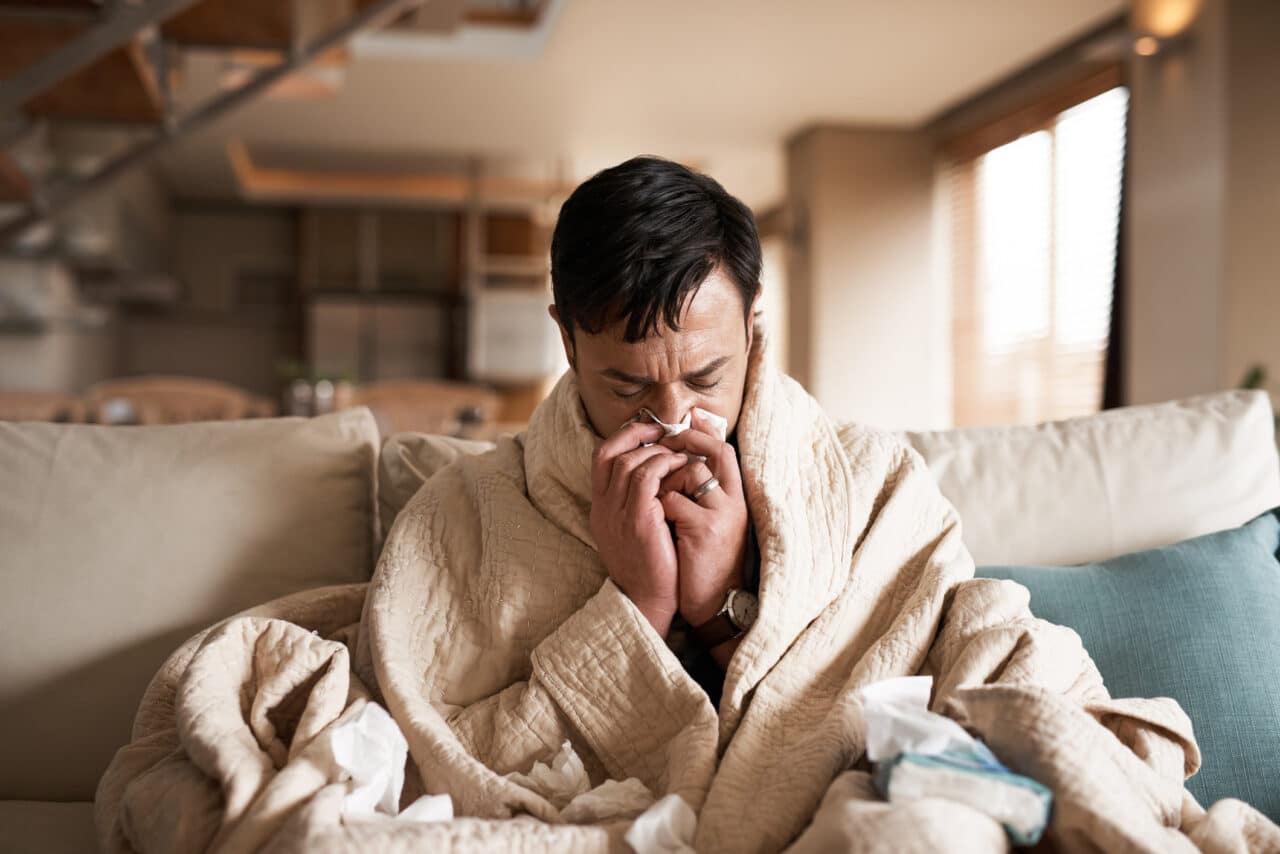We all know that winter is synonymous with cold and flu season, but have you ever wondered why? Turns out there are several likely reasons why people get more colds in the winter. Let’s examine why as well as how to minimize your risk of illness.
Cold Air May Impact Your Ability To Fight Off Viruses

A 2022 study found that colder temperatures killed off a large amount of virus and bacteria-fighting cells within the nostrils. These cells are known as nasal epithelium-derived extracellular vesicles (EVs). Having less can potentially increase vulnerability to certain illnesses.
According to the study, “These potent antiviral immune defense functions mediated by TLR3-stimulated EVs were impaired by cold exposure via a decrease in total EV secretion as well as diminished microRNA packaging and antiviral binding affinity of individual EV.”
More Time Spent Indoors Increases Exposure To Germs
Because the weather is cooler and wetter in the winter, we end up spending significantly more time indoors. So, when we meet up with others, we are often inside, in closer quarters breathing very close to one another. This is a perfect environment for viruses like the cold and flu to spread.
Dry Air Makes Illness More Likely
Colder air has less moisture than warm air. This can dry out your nostrils, which makes them more prone to infection as mucus works to protect your body from illness. Dry air can also exacerbate symptoms of a cold, such as a sore throat.
Minimize Your Chances of Catching a Cold
While it’s clear that you’re more likely to catch a cold in the winter months, there are steps you can take to lower your risk:
- Wash your hands often
- Avoid being in close contact with people who are coughing, sneezing or exhibiting other signs of illness
- Don’t touch your face with unwashed hands
When To See Your Medical Provider
If you have a cold, you usually only need a few days of rest, plenty of hydration and perhaps some over-the-counter medication from Hawthorne Taylor Pharmacy.
However, if you find yourself dealing with lingering nasal congestion, sore throat, or a chronic cough that will just not go away after several weeks, make an appointment with your doctor. You may have an underlying condition that needs to be addressed by an ENT specialist to help find the right treatment and get you back to feeling your best.
For more information or to schedule an appointment with one of our experts, contact Palmetto ENT & Allergy today.
